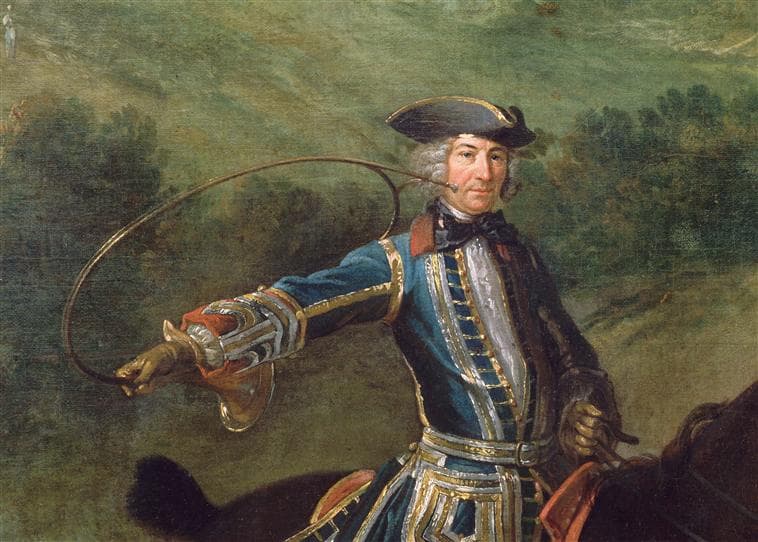For every aspiring professional cellist, David Popper (1843-1913) is a household name. His High School of Cello Playing Op. 73, a collection of advanced cello etudes, is considered the cream of the crop of cello instruction for its pedagogic value and popularity. It’s very surprising that Popper is less well known away from the practice room today, especially since he was a highly respected composer in his day.
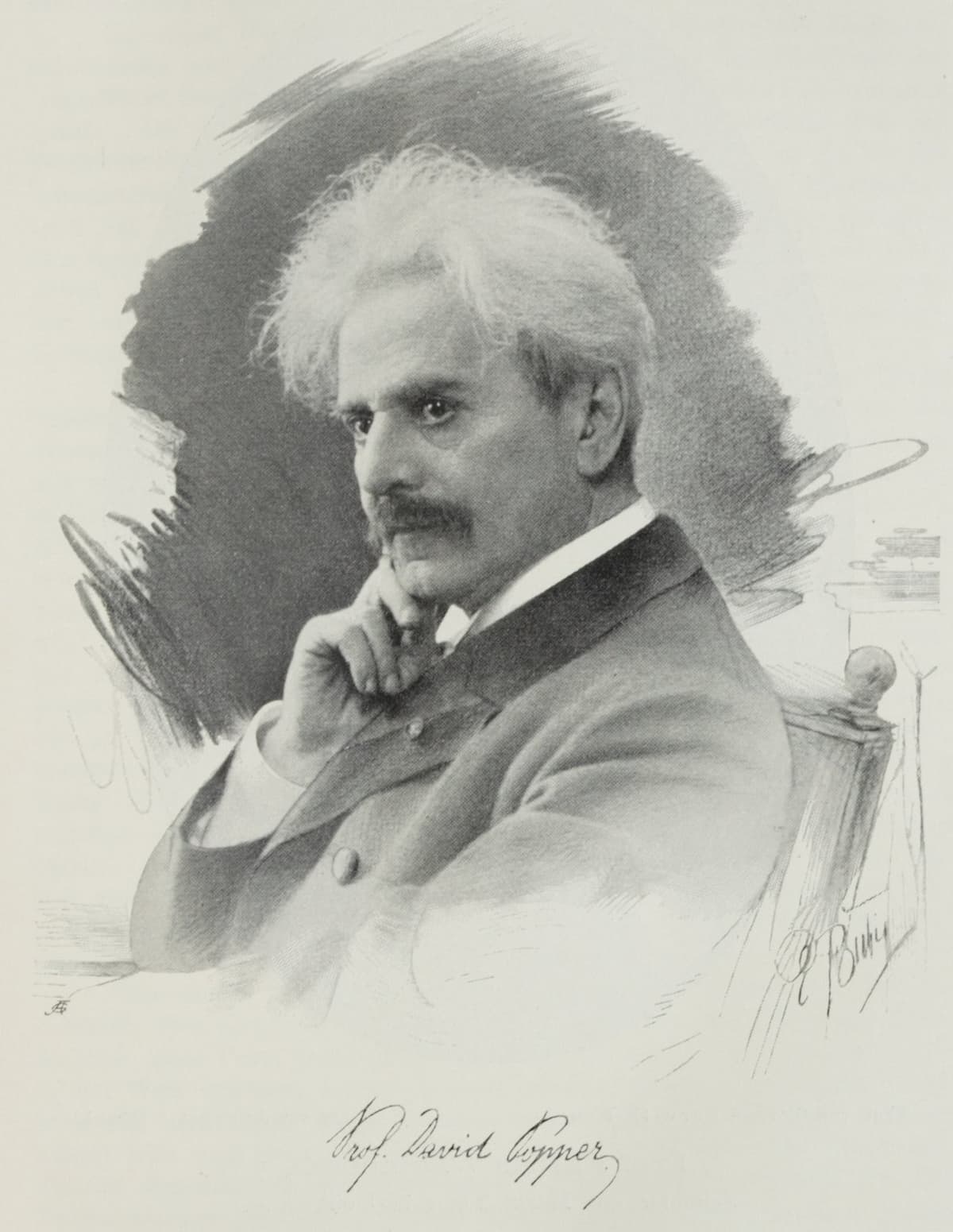
David Popper
He personally knew Brahms, Bruckner, Grieg, Liszt, Tchaikovsky, Volkmann, and Wagner and was the principal cellist of the Vienna Philharmonic and the orchestra of the Vienna State Opera. In addition to a stellar career in performance, Popper was a prolific composer who wrote five concertos for the instrument. This includes a Cello concerto in C Major erroneously attributed to Haydn. I’ve been going to concerts ever since I was a little child, and I have never heard any of the Popper concertos, so it’s high time to get to know these wonderful works.
David Popper: Cello Concerto No. 1 in D minor, Op. 8
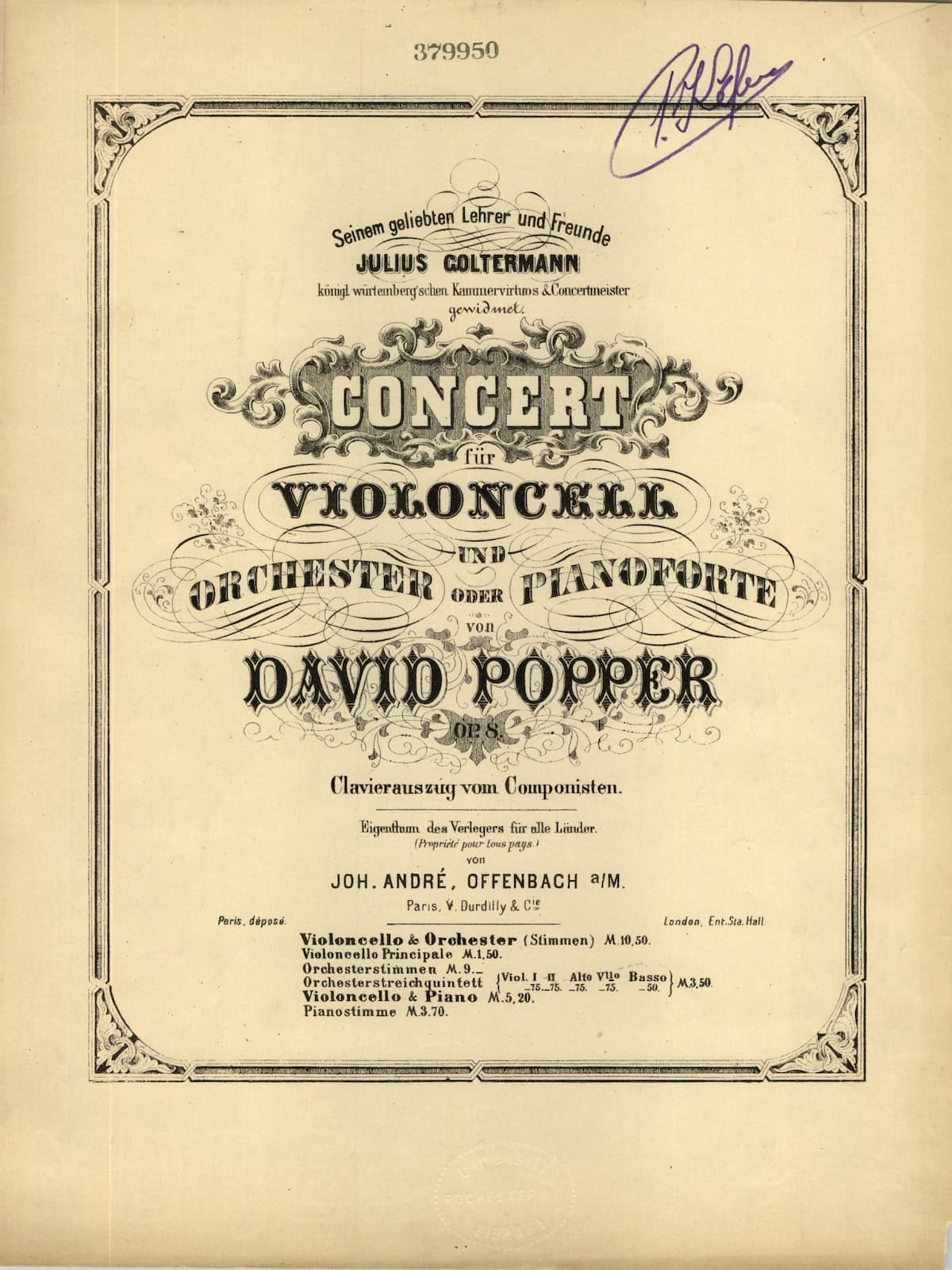
David Popper: Cello Concerto No. 1 in D minor, Op. 8
David Popper: Cello Concerto No. 1 in D Minor, Op. 8 (Wen-Sinn Yang, cello; Cologne West German Radio Orchestra; Niklas Willén, cond.)
Popper’s first cello concerto dates from around the time of his engagement as the solo cello at the Vienna Court Opera. At the same time, of course, he was still traveling around Europe as a highly acclaimed cello virtuoso. The work premiered in Löwenberg in December 1865, and the music critic for the Neue Zeitschrift für Musik writes, “We mention an original new work, performed here for the first time – the Violoncello Concerto in D Minor (Op. 8), composed by Herr Popper. We are pleased to discover that, unlike most cello concertos, it avoids a potpourri-like style, moving forward and bringing unity to the work.”
Technically extremely demanding, the concerto is a wonderful first effort, full of deeply felt romanticism. Some of the solo phrases, such as those in the secondary theme of the first movement, have been described as “very flat and longwinded.” As the critic put it, “ although he has not quite mastered the form or achieved a full homogenous style, the concerto offers much that is piquet and effective in ideas and in instrumentation. Re: Herr Popper’s playing – nothing more could be desired …” The concerto was published in Mainz in 1871 and carries a dedication to his former teacher, Julius Goltermann.
David Popper: Cello Concerto No. 2 in E minor, Op. 24
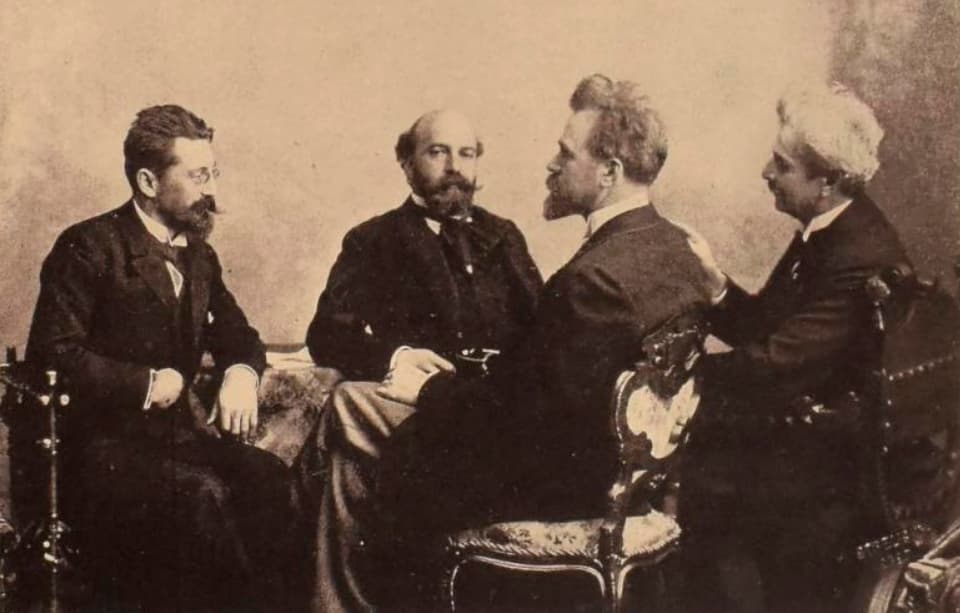
The members of the Budapest Quartet in 1888: Josef Waldbauer, Victor von Herzfeld, Jenő Hubay and David Popper
David Popper: Cello Concerto No. 2 in E Minor, Op. 24 (Martin Rummel, cello; Czech Chamber Philharmonic Orchestra, Pardubice; Tecwyn Evans, cond.)
Despite carrying a high opus number, the Cello Concerto No. 2 in E minor is one of Popper’s earliest works. Cellist Martin Rummel, together with fellow cellist Yuriy Leonovich, who maintains an informative website on the composer, have established that the work premiered on 9 November 1862. From reviews around that time, we learn that Popper was an extraordinary violoncellist. “he draws a large full tone, and his performance shows an unusual combination of deep sentiment and mastery of the instrument; in the best sense, he can be characterized as a modern artist.”
This concerto was revised in 1879 and first performed in that version at the Leipzig Gewandhaus on 23 October 1879. Published in June 1880, the work was considered a brilliant success. Popper beautifully expressed his operatic temperament and his romantic thoughts in the dramatic first movement. We also find great emotional depth in the second movement, and the concluding “Allegro” is a “wonderful blend of virtuosity, pomp, and stylistic intuition.”
David Popper: Cello Concerto No. 3 in G Major, Op. 59
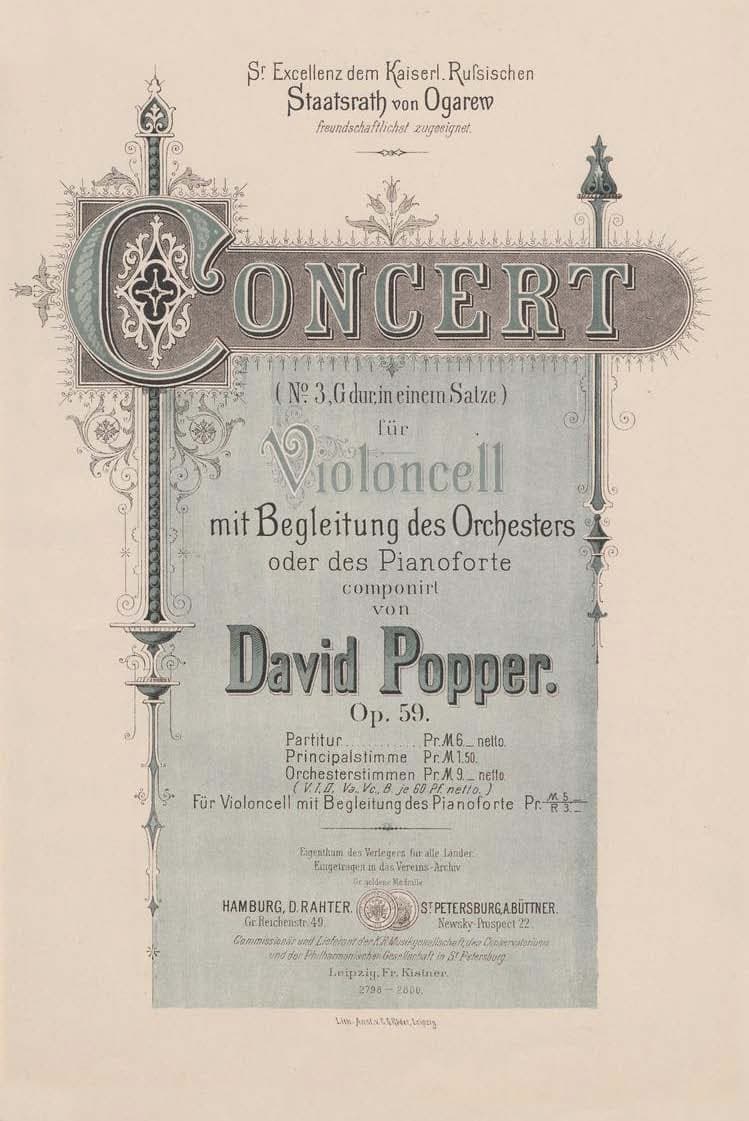
David Popper: Cello Concerto No. 3 in G Major, Op. 59
David Popper: Cello Concerto No. 3 in G Major, Op. 59 (Wen-Sinn Yang, cello; Cologne West German Radio Orchestra; Niklas Willén, cond.)
It is possible that Popper’s Concerto No. 3 was composed for a private event as the dedication reads to “His Excellency, the Imperial Russian Councillor von Ogarev.” Scored in a single movement, the orchestral size is much reduced. Even experts know little about the circumstances of composition, but we do know that the concerto was premiered by the Budapest Philharmonic under Karl Goldmark, on 9 March 1888. At that time, Popper had already started his career in Budapest.
Franz Liszt invited Popper to become the head of cello and the chamber music faculty at the National Hungarian Royal Academy of Music, an institution that is known today as the Franz Liszt Academy in Budapest. A newspaper notice reports, “A new field of activity has opened up for David Popper as a Professor of the Royal Academy of Music (in Budapest) where he functions with the same zeal, ability, and success as he did as a composer and unparalleled artist. His fame flows from distant lands to Budapest, and students are attracted there to seek inspiration and stimulation from their teacher, to take back to their own countries.”
David Popper: Cello Concerto No. 4 in B minor, Op. 72
David Popper: Cello Concerto No. 4 in B Minor, Op. 72 (version for cello and piano) (Martin Rummel, cello; Mari Kato, piano)
Composed and published in 1900, Popper’s Cello Concerto No. 4 in B minor apparently foreshadows new technical developments in his collection of advanced cello etudes. As Popper’s biographer writes, “Popper abandoned his practice of stating a long lyric theme as an opening and used, instead, a short, crisp motive which reappears in a quasi-cyclic form in the second and last movements, but not in the third, scherzo, movement. It assumes various rhythms — three-four, four-eight, and two-two. The work is well-planned and demonstrates an intention to create something new in form and treatment for both the orchestra and solo instrument.”
Popper surprised audiences in 1899 with the discovery of a Cello Concerto in C Major attributed to Joseph Haydn. Of course, it’s pure Popper, and I have already written about this composition in my article on “10 Greatest Musical Hoaxes and Pranks.” It’s not entirely clear what motivated the “Popper Ruse,” but Popper should certainly be given full credit for expanding the technical limits of the cello. And as we can hear in his wonderful concertos, Popper had a gift for gracefully blending harmonious melodies with colourful fireworks of virtuosity.
For more of the best in classical music, sign up for our E-Newsletter

